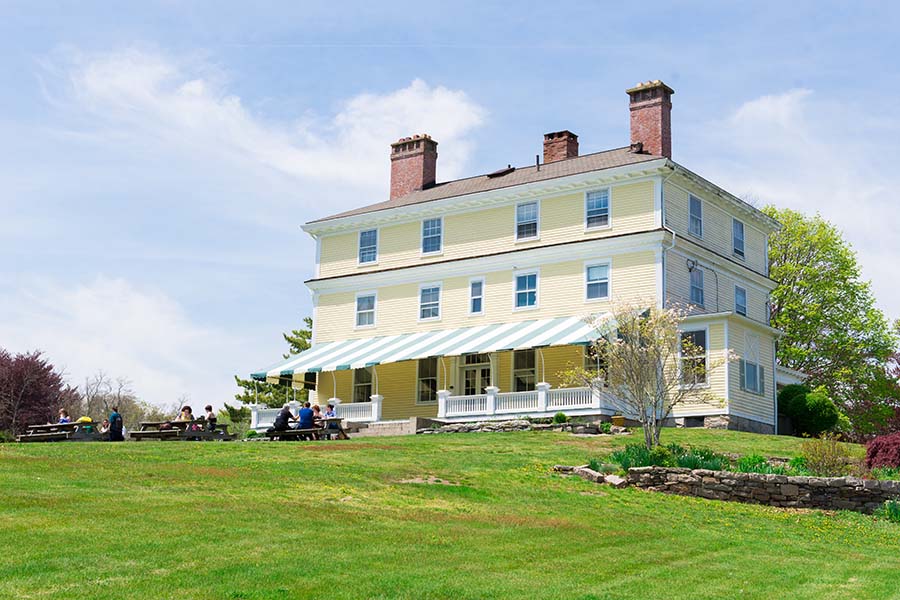Beyond MFAs and other collegiate training options, fellowships and other career development options are available. A partial list:
- The National Directors Fellowship at the Eugene O’Neill Theater Center in Waterford, Conn. is an 18-month program designed to connect early-career directors with new playwrights. Ideal candidates should have a strong knowledge of multiple aspects of the theatre world and should have established themselves as directors in at least one community.
- The Michael Maggio Directing Fellowship at the Goodman Theatre awards one early-career director each fall with a stipend and the opportunity to assist one of the resident directors on a Goodman production. Applicants must be Chicago-based.
- The 2050 Artistic Fellowship at New York Theatre Workshop in New York City is a year-long residency program for emerging playwrights and directors starting each June. Six fellows receive a stipend and have the chance to collaborate on artistic projects and to develop their own work. Named for the U.S. Census Bureau finding that by 2050 there will be no single racial or ethnic majority, the program aims to promote diversity by celebrating the voices of different artists.
- The Drama League in New York City offers four different fellowships in directing at resident theatres, all culminating with a professionals week designed to allow directors to see shows, participate in post-show seminars, and connect with the industry. The Classical Directing Fellowship for Artists of Color is awarded annually to two directors, and operates in partnership with Shakespeare & Co. in Lenox, Mass., the Hudson Valley Shakespeare Festival in Garrison, N.Y., and the Old Globe in San Diego, Calif. The 14-week fellowship is open to artists of color and includes two possible tracks, one on each coast. The New York Directing Fellowship is open to early to mid-career directors who want to work with industry pros at New York theatres and direct pieces in an annual DirectorFest. Fellows also receive additional training through workshops and retreats and a stipend of $7,225 over the 17-week fellowship. The Hangar Directing Fellowship, in partnership with the Hangar Theatre and the Cherry Artspace, both in Ithaca, N.Y., is awarded to four directors annually, who work with students in the Lab Company at the Hangar Theatre, as well as directing shows as part of the Wedge series at Cherry Artspace. The program runs for 10 weeks and fellows receive a stipend of $4,250, paid in equal installments. Finally, the Leo Schull New Musicals Fellowship is a five-week fellowship in partnership with the Signature Theatre in Arlington, Va., allowing fellows to assist with the musical theatre lab SigWorks. Fellows receive a stipend of $2,125 for the course of their time.
- Manhattan Theatre Club (MTC) in New York City offers two fellowships for directors, the Samuel J. Friedman Directing Assistantship and the Jonathan Alper Directing Fellowship. Both involve assisting on a production at MTC. MTC also often participates in the Stage Directors and Choreographers Foundation Observership Program, which allows fellows to observe directors working on Broadway, Off-Broadway, and at various regional theatres.
- The Directing Residency Program at Milwaukee Repertory in Wisconsin allows emerging directors to assistant-direct various Rep productions over the course of a season, which runs August to May. Directing residents also receive the chance to direct plays for Rep Lab, Milwaukee Rep’s annual play festival. Residents receive a stipend of $75 a week.
- The Phil Killian Directing Fellowship at Oregon Shakespeare Festival (OSF) in Ashland, Ore., is a four-month long fellowship designed to expose directors to work on classical text, with fellows assistant-directing two productions and a public reading of a new play chosen by OSF. A stipend of $6,000 is provided.
- The Directing Fellowship at Playwrights Horizons in New York City is a season-long position involving fellows assistant-directing three Playwrights Horizons productions. Two fellows are chosen annually. Applicants should have experience directing in New York. Fellows receive a $40/day stipend and an unlimited Metrocard. Playwrights Horizons plans to add scholarships for outstanding candidates of color. Stage Directors and Choreographers Society (SDC) offers six different directing fellowships annually for directors at various career stages. The Shepard and Mildred Traube Fellowship works to support aspiring Broadway directors by allowing early-career directors to assist on a Broadway production. The Denham Fellowship is awarded annually to one female director to support one proposed project. The Mike Ockrent Fellowship is given to an early-career director to work with a master director on a large-budget play or musical. The Sir John Gielgud Fellowship allows early career directors to assist on classical plays. The Charles Abbott Fellowship is for early-career musical theatre directors and director/choreographers to shadow a director at a major regional theatre and to become acclimated with the regional theatre environment. The Kurt Weill Fellowship is for early-career directors and choreographer to become familiar with the theatrical works of Weill or Blitzstein by assisting a master director on one of their pieces.
- Williamstown Theatre Festival in Williamstown, Mass., offers two fellowship programs for emerging directors. The Bill Foeller Fellowship, awarded to a director of color, provides a full scholarship and a stipend for living expenses. The fellow will have the opportunity to direct a production in the company’s Directing Studio featuring members of the festival’s Non-Equity Acting Company. The Boris Sagal Fellowship / Drama League Residency offers a director the opportunity to collaborate with a playwright, lyricist, and/or composer to present a workshop production of a new play or musical. The director will work with the festival designers and the Non-Equity Acting Company on the project. The Drama League also offers resources to further support the development of the new work in New York City.


